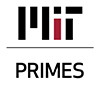 Frequently Asked Questions
Frequently Asked Questions
- Which section of PRIMES am I eligible for?
- I am an international student attending school in the United States. Am I eligible?
- I am a U.S. citizen residing abroad. Am I eligible?
- Do you admit new students to the Computer Science and Computational Biology sections?
- I am not eligible for PRIMES. What should I do?
- How do I prepare for PRIMES?
- Where do I find a proof-based math course?
- If admitted, can I choose a project to work on? How do you match students with projects?
- If admitted, will I get an individual or a group project?
- Are group projects inferior to individual projects?
Which section of PRIMES am I eligible for?
See How To Apply page.
I am an international student attending school in the United States. Am I eligible?
Yes, if it is a day school. If you reside abroad and study in an online U.S. school, you are not eligible.
I am a U.S. citizen residing abroad. Am I eligible?
No, only students attending school in the United States are eligible.
Do you admit new students to the Computer Science and Computational Biology sections?
In 2025, MIT PRIMES has narrowed its focus to Math and admits new students only to the Math section. There will be no new admission to Computer Science or Computational Biology. The current CS/Bio students might continue in 2025, if their current mentors are available. We intend to expand research offerings in applied mathematics to accommodate students with interests in theoretical computer science or mathematical biology. We strongly encourage our colleagues in EECS and other MIT departments to set up PRIMES-like programs in their departments and would be happy to provide advice and share our experience.
I am not eligible for PRIMES. What should I do?
Everyone is welcome to participate in CrowdMath, a massive online collaborative year-long research project open to all high school students around the world. CrowdMath projects often result in research papers.
We also maintain a list of other recommended programs.
How do I prepare for PRIMES?
We suggest a list of recommended readings as a preparation for PRIMES and as a background for future research. You may also find it useful to consult problem sets and solutions from previous years.
Where do I find a proof-based math course?
Courses vary greatly among various universities and online platforms. For MIT, for example, any math class 18.XYZ where X>0 is proof-based. If the course you took had proofs as a significant part of the syllabus, this would count. If unsure, just describe the class in the application, and we will see if it is proof based. We should stress that this is not a requirement, just a suggestion.
If admitted, can I choose a project to work on? How do you match students with projects?
Unfortunately, no; you cannot choose your project. Students admitted to the PRIMES research track will be matched to a mentor and to an individual or a group project (with at most 3 students per group). This assignment is made by PRIMES staff, taking into account students' preferences but without their participation. Matching is a complicated process which requires balancing many factors — student background and interests, available projects and mentors, locations, time zones, etc. Often the matching is not perfect, but we try our best to find a solution that works for everyone under multiple constraints. We stress that by accepting the PRIMES offer of admission, students agree to accept their project assignment.
If admitted, will I get an individual or a group project?
Some students prefer to be placed in individual projects for various reasons, e.g., because this allows them to participate in certain science competitions. However, we cannot provide individual projects to everyone, and some students will be placed in group projects. We also note that there is no direct connection between whether a student is placed in an individual or a group project and the perceived strength of their application.
Are group projects inferior to individual projects?
No, they are not. Group projects have many important advantages. They teach students to collaborate — an extremely important skill for a research mathematician. They often achieve stronger results by combining the skills and efforts of group members, and have an invaluable social component. Also there are a number of important science competitions that do allow group projects. Besides, we do not see any correlation between placement of a student in a group project and their future success, for instance in college admissions. Thus, there is no reason to consider group projects inferior to individual ones, and PRIMES students placed in group projects are sure to get a full-fledged PRIMES experience.
Contact
With questions, contact PRIMES Program Director Slava Gerovitch at
